
Yehoshua Porath was an Israeli historian and professor of Middle East history.
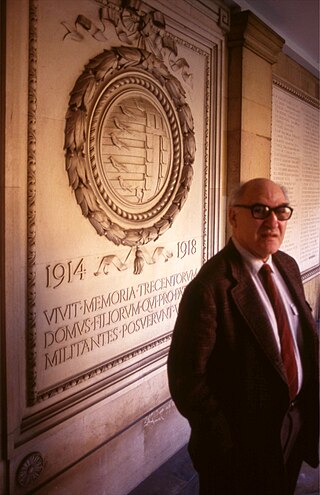
Gerhard "George" Lachmann Mosse was a German-American social and cultural historian, who emigrated from Nazi Germany to Great Britain and then to the United States. He was professor of history at the University of Iowa, the University of Wisconsin–Madison, and also in Israel, at the Hebrew University of Jerusalem. Best known for his studies of Nazism, he authored more than 25 books on topics as diverse as constitutional history, Protestant theology, and the history of masculinity. In 1966, he and Walter Laqueur founded The Journal of Contemporary History, which they co-edited.

Zeev Sternhell was a Polish-born Israeli historian, political scientist, commentator on the Israeli–Palestinian conflict, and writer. He was one of the world's leading theorists of the phenomenon of fascism. Sternhell headed the Department of Political Science at the Hebrew University of Jerusalem and wrote for Haaretz newspaper.
Jacob Leib Talmon was Professor of Modern History at the Hebrew University of Jerusalem.
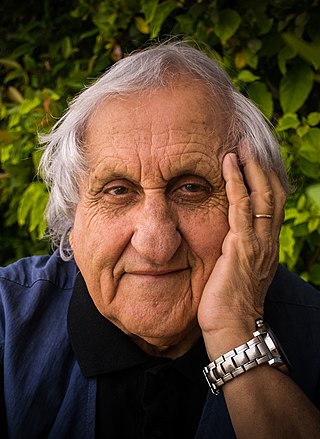
Avraham Gabriel "Boolie" Yehoshua was an Israeli novelist, essayist, and playwright. The New York Times called him the "Israeli Faulkner". Underlying themes in Yehoshua's work are Jewish identity, the tense relations with non-Jews, the conflict between the older and younger generations, and the clash between religion and politics.

Jewish identity is the objective or subjective state of perceiving oneself as a Jew and as relating to being Jewish. Under a broader definition, Jewish identity does not depend on whether a person is regarded as a Jew by others, or by an external set of religious, legal, or sociological norms. Jewish identity does not need to imply religious orthodoxy. Accordingly, Jewish identity can be cultural in nature. Jewish identity can involve ties to the Jewish community. Orthodox Judaism bases Jewishness on matrilineal descent. According to Jewish law (halacha), all those born of a Jewish mother are considered Jewish, regardless of personal beliefs or level of observance of Jewish law. Progressive Judaism and Haymanot Judaism in general base Jewishness on having at least one Jewish parent, while Karaite Judaism bases Jewishness only on paternal lineage. These differences between the major Jewish movements are the source of the disagreement and debate about who is a Jew.
Hans Kohn was an American philosopher and historian. He pioneered the academic study of nationalism, and is considered an authority on the subject.
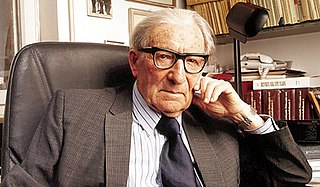
Max Jammer, was an Israeli physicist and philosopher of physics. He was born in Berlin, Germany. He was Rector and Acting President at Bar-Ilan University from 1967 to 1977.

Abba Ahimeir was a Russian-born Jewish journalist, historian, and political activist. One of the ideologues of Revisionist Zionism, he was the founder of the Revisionist Maximalist faction of the Zionist Revisionist Movement (ZRM) and of the clandestine Brit HaBirionim. Colin Shindler contends that the title of 'Father of the Revolt' should be shared equally between Ze'ev Jabotinsky and Ahimeir.

Brit HaBirionim was a self-declared faction of the Revisionist Zionist Movement (ZRM) in Mandatory Palestine, active between 1930 and 1933. It was founded by Abba Ahimeir, Uri Zvi Greenberg and Yehoshua Yeivin.
Yehouda Shenhav is an Israeli sociologist and critical theorist. He is known for his contributions in the fields of bureaucracy, management and capitalism, as well as for his research on ethnicity in Israeli society and its relationship with the Israeli-Palestinian conflict.

Yaron Ezrahi was an Israeli political theorist and philosopher, professor at The Hebrew University of Jerusalem, a senior Fellow at the Israel Democracy Institute in Jerusalem, and a public intellectual. Ezrahi was known for his work on the relations between modern science and the rise of the modern liberal democratic state and the political uses of scientific knowledge and authority. His late work focuses on the deterioration of the Enlightenment version of the partnership between science, technology and democracy, the changing parameters of postmodern imaginaries, and performances of the democratic order. His books, written in English and Hebrew, were translated into German and Chinese.
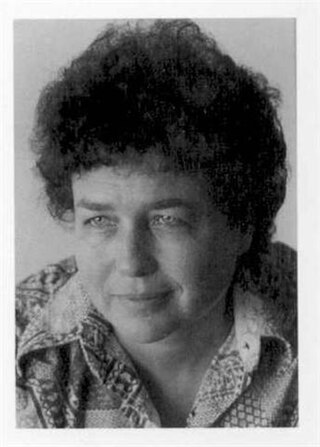
Ruth Kark is an Israeli historical geographer and professor of geography at the Hebrew University of Jerusalem. Professor Kark is a well-known researcher and expert in the field of the historical geography of Palestine and Israel.
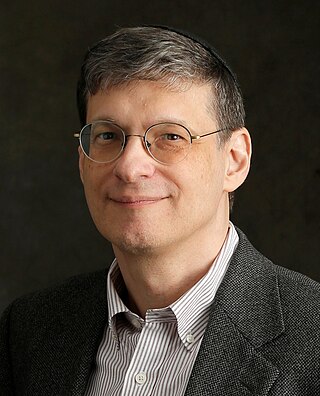
Yoram Reuben Hazony is an Israeli-American philosopher, Bible scholar, and political theorist. He is president of the Herzl Institute in Jerusalem and serves as the chairman of the Edmund Burke Foundation. He has argued for national conservatism in his 2018 book The Virtue of Nationalism and 2022's Conservatism: A Rediscovery.
Benjamin Isadore Schwartz was an American political scientist and sinologist who wrote on a wide range of topics in Chinese politics and intellectual history.
Post-Zionism is the opinion of some Israelis, diaspora Jews and others, particularly in academia, that Zionism fulfilled its ideological mission with the formation of the modern State of Israel in 1948, and that Zionist ideology should therefore be considered at an end. The Jewish right also use the term to refer to the Israeli Left in light of the Oslo Accords of 1993 and 1995. Some critics associate post-Zionism with anti-Zionism; proponents strenuously deny this association.
Baruch Kimmerling was an Israeli scholar and professor of sociology at the Hebrew University of Jerusalem. Upon his death in 2007, The Times described him as "the first academic to use scholarship to reexamine the founding tenets of Zionism and the Israeli State". Though a sociologist by training, Kimmerling was associated with the New Historians, a group of Israeli scholars who question the official narrative of Israel's creation.

Palestinian nationalism is the national movement of the Palestinian people that espouses self-determination and sovereignty over the region of Palestine. Originally formed in the early 20th century in opposition to Zionism, Palestinian nationalism later internationalized and attached itself to other ideologies; it has thus rejected the occupation of the Palestinian territories by the government of Israel since the 1967 Six-Day War. Palestinian nationalists often draw upon broader political traditions in their ideology, such as Arab socialism and ethnic nationalism in the context of Muslim religious nationalism. Related beliefs have shaped the government of Palestine and continue to do so.

Jacob M. Landau was Professor Emeritus in the Department of Political Science at the Hebrew University of Jerusalem.
Jonathan Frankel was a historian and writer. He was a lecturer at the Hebrew University of Jerusalem from 1964 to 1985, and a professor between 1985 and 2004.













